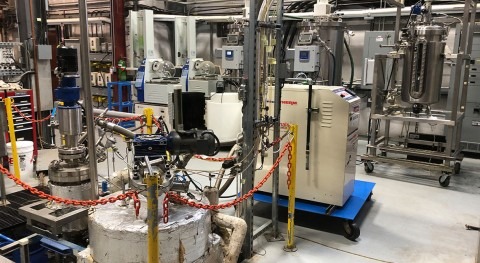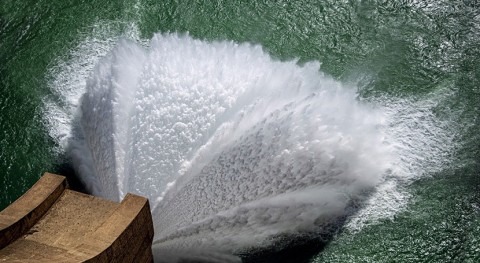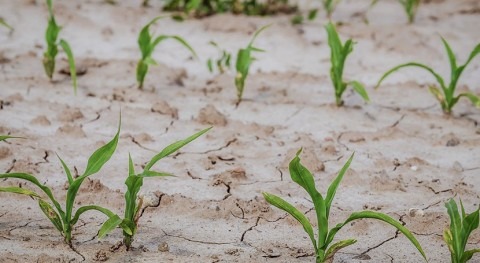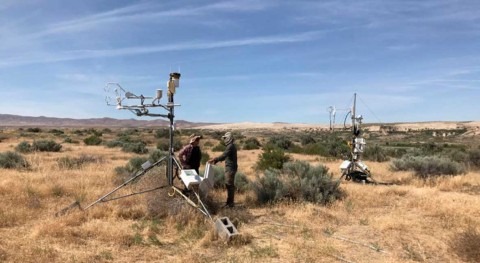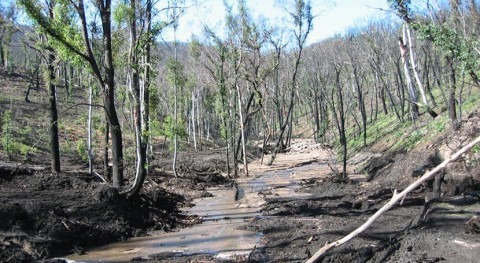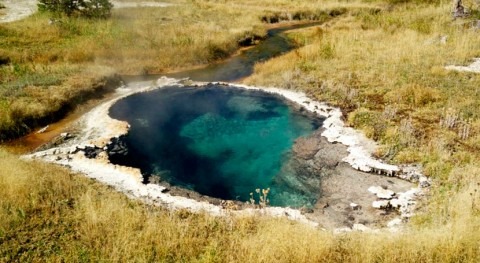A breakthrough into splitting water into its parts could help make renewable energy pay off, even when the sun isn’t shining and the wind isn’t blowing.
Using solar and wind power when it is available for water splitting, a process that uses electricity to split H2O into hydrogen and oxygen, offers a way to store energy in the form of hydrogen fuel.
Currently the most popular system used for water splitting, or water electrolysis, relies on precious metals as catalysts, but a collaborative research team, including scientists from Los Alamos National Laboratory and Washington State University, has developed a system that uses less expensive and more abundant materials. They describe the advance in a paper published in Nature Energy on March 9.
“The current water electrolysis system uses a very expensive catalyst. In our system, we use a nickel-iron based catalyst, which is much cheaper, but the performance is comparable,” said Yu Seung Kim, a research scientist at Los Alamos National Laboratory and corresponding author on the paper.
Most water splitting today is conducted using a piece of equipment called a proton exchange membrane water electrolyzer, which generates hydrogen at a high production rate. It’s expensive, and works under very acidic conditions, requiring precious metal catalysts such as platinum and iridium as well as corrosion-resistant metal plates made of titanium.
The research team worked to solve this problem by splitting water under alkaline, or basic, conditions with an anion exchange membrane electrolyzer. This type of electolyzer does not need a catalyst based on precious metals. In fact, a team led by Yuehe Lin, professor at WSU’s School of Mechanical and Materials Engineering, created a catalyst based on nickel and iron, elements that are less expensive and more abundant in the environment.
Lin’s team shared their development with Kim at Los Alamos, whose team in turn developed the electrode binder to use with the catalyst. The electrode binder is a hydroxide conducting polymer that binds catalysts and provides a high pH environment for fast electrochemical reactions.
The combination of the Los Alamos-developed electrode binder and WSU’s catalyst boosted the hydrogen production rate to nearly ten times the rate of previous anion exchange membrane electrolyzers, making it comparable with the more expensive proton exchange membrane electrolyzer.
About 10 million metric tons of hydrogen are currently produced in the United States every year, mostly by using natural gas in a process called natural gas reforming, according to the U.S. Department of Energy. Hydrogen produced from a water splitting process that is powered by electricity from renewable energy holds many economic and environmental benefits, Lin said.
“Water splitting is a clean technology, but you need electricity to do it,” said Lin, who is also a corresponding author on the paper. “Now we have a lot of renewable energy, wind and solar power, but it is intermittent. For example, at night, we can’t use solar, but if during the day, we can use extra energy to convert it into something else, like hydrogen, that’s very promising.”
The global hydrogen generation market is expected reach $199.1 billion by 2023. Potential markets for hydrogen energy include everything from mass energy conversion and power grid management to fuel cells for cars. Lin estimates that there are approximately 600 wind farms in the United States ready for direct connections to water electrolysis systems.




